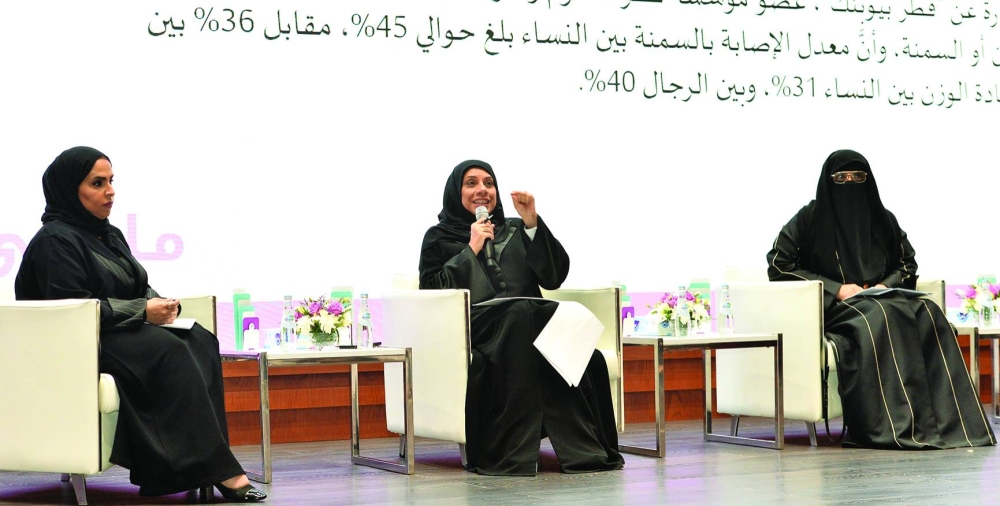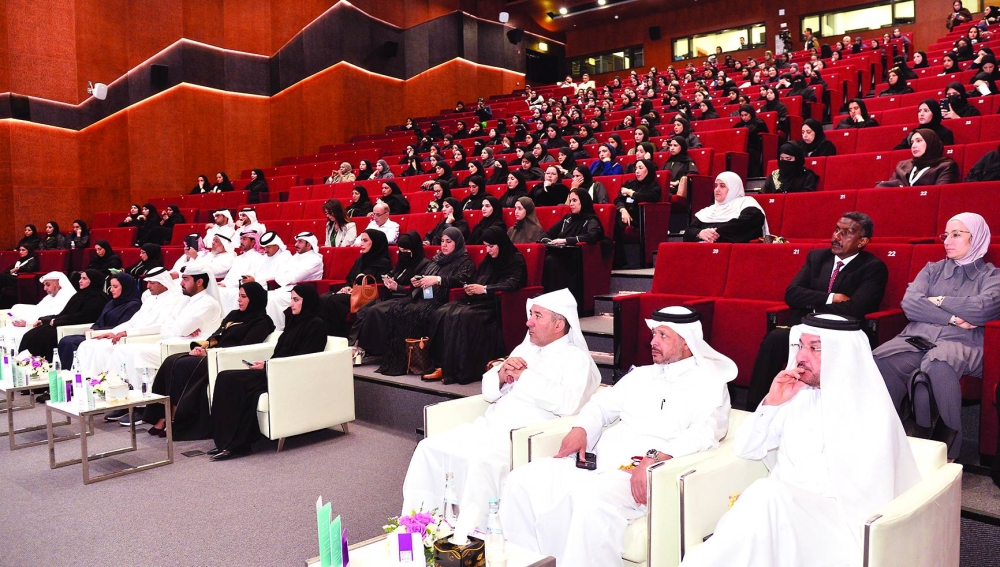The Protection and Social Rehabilitation Centre (Aman) in co-operation with Qatar University (QU) organised Tuesday, a forum for school girls and university students, to mark the International Women’s Day, where the need to support women to maintain balance between family and work requirements was highlighted.
Speaking at a panel discussion on ‘Women in the centre of Qatar Vision 2030’, Dr Sherifa al-Emadi, executive director of Doha International Family Institution (Difi) at Qatar Foundation, stressed that even though women in Qatar have achieved great success at the work and professional levels, there is a pressing need to maintain more balance between family life, professional life and work.
She said that many young professionals opt to delay their marriage and to start a family because they want to pursue more success in their careers. She pointed out that women in Qatar have achieved a high level of participation in the workforce with a percentage amounting to 60.5%, according to the World Bank Statistics in this regard for 2022.
Besides, according to a survey conducted by the Planning and Statistics Authority in 2020, women in the country work an average of 38 hours to 47 hours a week, depending on the work sector and nature.
However, a study conducted by Difi in 2019, showed that a considerable number of the women who were the subject of the study expressed a feeling of discomfort and disappointment for the lack of mechanism to support them to maintain balance between work and family. They did not feel good towards having to leave their children and family and spend many hours at work. They also wanted to spend more time with their children to monitor their studies and schooling, and to talk to them about other daily issues.
In addition, Dr Sherifa pointed that statistics showed that a very limited percentage of the Qatari infants born to working mothers enjoyed natural breastfeeding during their first six months due to work engagements and obligations. She further stressed the role of women within the family and the need to introduce more strategies and policies to support women and to help them assume their responsibility without undermining their right to work and produce.
Further, Dr Sherifa pointed out that the fertility rate among Qatari women is considered very low compared to the number of the local population in the country amounting to around 2.6 children per woman. This should be addressed through a number of regulations and decisions, she suggested, which give women more flexible working hours and work options.
Dr Latifa al-Meghaissib, head of Art Education at QU and family consultant, stressed the need to maintain local traditions and to abide by traditional family ethics, where mothers should play an active and vital role to promote these within the society.
Khawla al-Sulaiti, legal specialist at Aman, pointed out that Qatari women have made great achievements over the past years attaining highest positions and becoming part of the decision-making process in the country.
She said that the Qatari constitution and legislations have given men and women equal rights and duties in almost all respects, stressing the key status of women in the country.

Participants in the panel discussion.

A view of the audience at the event. PICTURES: Shaji Kayamkulam
